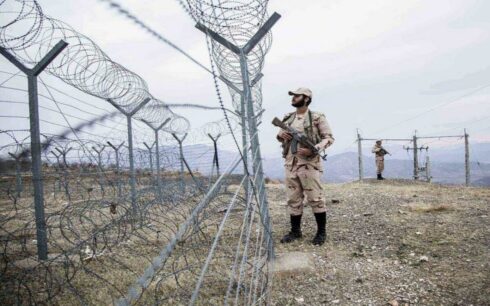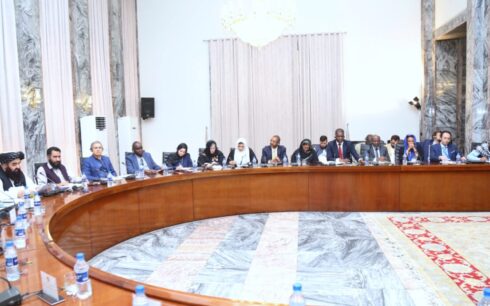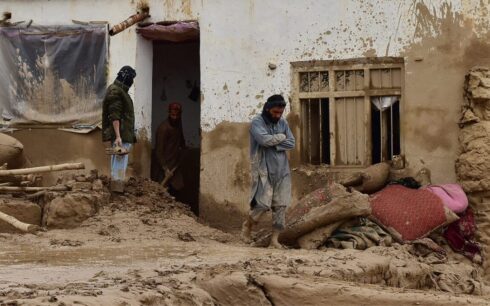Rina Amira, Washington’s special envoy for women’s rights in Afghanistan said this week that the situation in Afghanistan is “extraordinary,” and that it is “unprecedented” adding that the only other precedent, in the world, is what the Taliban did in the 1990s.
“There is no country in the world that denies women an education; we have over 50 edicts and decrees and systemic discrimination is on the basis of gender.” She said there is work to be done “collectively as the international community”.
The meeting, “Combating Gender Apartheid: The Situation of Women and Girls in Afghanistan”, was held on the sidelines of the 78th UN General Assembly this week.
Amiri said that a crisis “will not stay in Afghanistan but will bleed out”, and affect other states, which are fragile and that have extreme and hardline elements that are watching “very closely what happens in Afghanistan.”
She questioned why the international community has continued to engage the Taliban “given that the situation is so utterly extreme. She emphasized that not only does Afghanistan have the worst human rights record currently in the world, particularly in respect to women, but it also has the worst humanitarian crisis in the world.
Amiri stated that “the Taliban say one thing and do another” and because of this she is often asked by people “so why engage” with the Taliban.
She said the argument around “not engaging” with the Taliban was a legitimate one but that there are specific points that need to be looked at.
“Where is engagement happening [with women], at what level? is human rights just a talking point or is it being systematically mainstreamed in a way that’s convincing to the Taliban. Are we serious about it – when we talk to the Taliban.” She also questioned where the ‘non-taliban’ were included during engagement with Taliban
“Afghans inside and outside the country need to be engaged in a very meaningful way. She also emphasized that ‘unity of purpose’ was very important, especially in terms of accountability.
She emphasized that “there has to be unity among Afghans”. Addressing the people of Afghanistan, she urged them not to turn against each other. She said people in the country had different ideas on how to move forward but that some people believe it is a “necessity to sit and talk with the Taliban” but some don’t.
Earlier in the meeting, Richard Bennet, UN special rapporteur for Afghanistan’s human rights, also addressed the meeting and said that the recognition and normalization of relations with the Taliban by the international community is the “greatest fear” of women and girls in Afghanistan today.
Bennett stressed the need for meaningful inclusion of women in policy decisions which are made “within Afghanistan or by the international community.”
The event was attended by representatives of the international community, human and women’s rights activists as well as the Chargé d’Affaires of the Afghanistan Permanent Mission to the UN, Naseer Ahmad Faiq.
Addressing the event, Faiq voiced his “deepest” concern about the situation of Afghanistan, saying that women and girls are systematically being erased from society and that their fundamental rights are being violated.
“It is a matter that has far reaching consequences not only for the individuals affected but for the progress and prosperity in our society,” he said.
Faiq noted that Afghanistan under Taliban rule has manifested “nothing less than a gender apartheid.”
“It has been two-years since the Taliban took Afghanistan hostage and created a social, humanitarian, economic and political crisis,” he said. “Within this period, women and girls constituting half of the society have been suffering most.”
Faiq also suggested a proactive global alliance “comprising effective and cohesive messaging, robust policy responses, collective and united actions” to steer away Afghanistan from its current dangerous trajectory.
He stressed the need for further reporting mechanisms to hold the Taliban accountable for their human rights violations and crimes against humanity.
“Let’s support the progressive and democratic forces including women led movements and activists within and outside Afghanistan,” he said.
This comes amid growing calls from human rights activists that the repressive edicts against women and girls in Afghanistan should be recognized as “gender apartheid” by the international community.
Meanwhile, participants at the UN General Assembly held this week in New York stressed the need for the formation of an inclusive government in Afghanistan to pave the way for a solution to the ongoing crisis in the country.
An event titled “Global Solidarity with Afghan Women and Girls” which was also held on the sideline of the UN General Assembly in New York, saw women’s rights activists and diplomats calling on the world to take practical steps against the Taliban to get them to remove restrictions on girls and women in Afghanistan.





